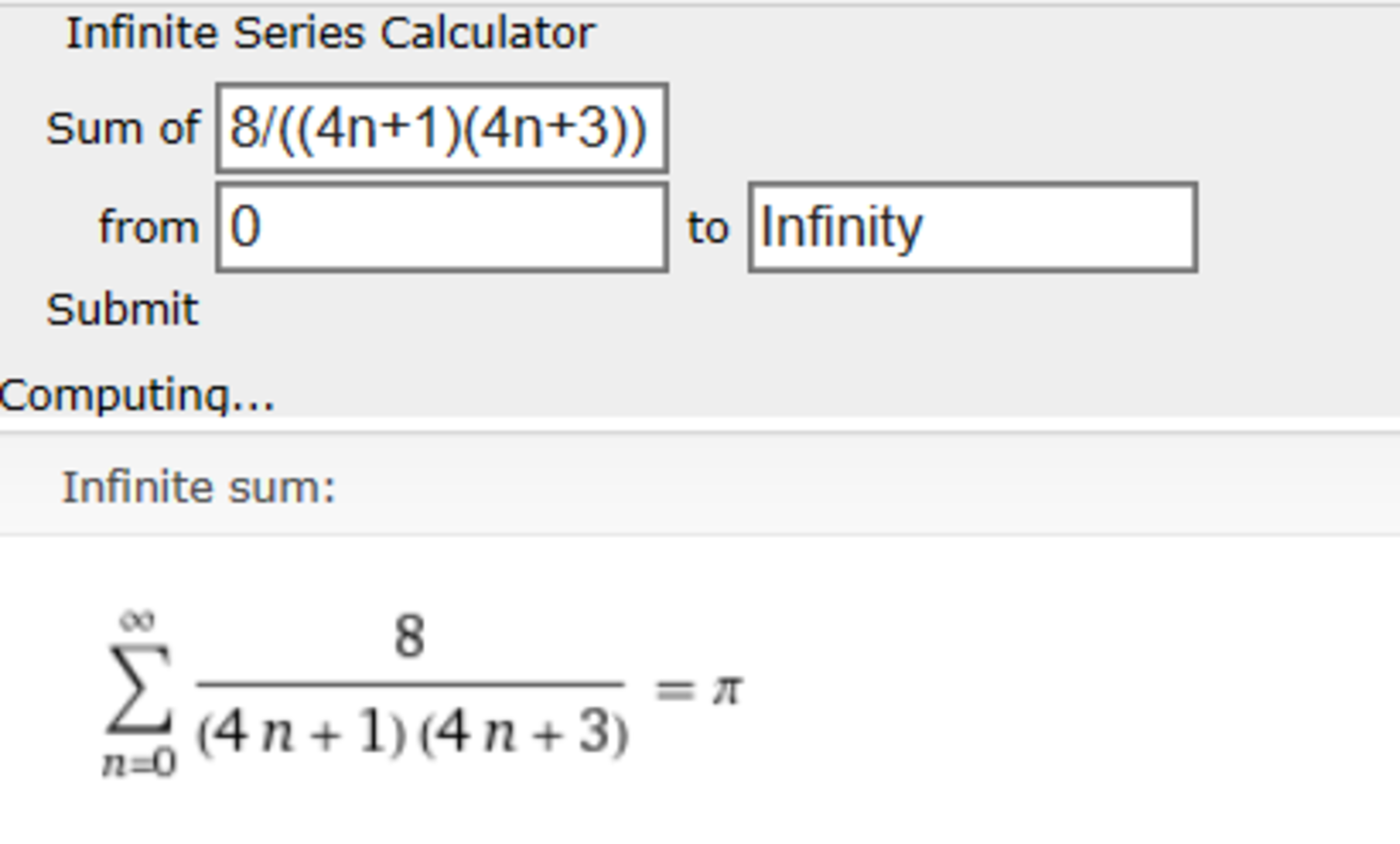Infinite Series that or
Yesterday night, I was looking for an infinite series that equals to .
And I found one! Using WolframAlpha's Infinite Series Calculator, I got:
 It was derived from:
It was derived from:
I also found an infinite series that converges to :
It was derived from:
I hope you enjoyed this article and comment if you find any other series that converges to or - must be in LaTeX!
Calculus
Algebra
No vote yet
1 vote
Easy Math Editor
This discussion board is a place to discuss our Daily Challenges and the math and science related to those challenges. Explanations are more than just a solution — they should explain the steps and thinking strategies that you used to obtain the solution. Comments should further the discussion of math and science.
When posting on Brilliant:
*italics*or_italics_**bold**or__bold__paragraph 1
paragraph 2
[example link](https://brilliant.org)> This is a quote# I indented these lines # 4 spaces, and now they show # up as a code block. print "hello world"\(...\)or\[...\]to ensure proper formatting.2 \times 32^{34}a_{i-1}\frac{2}{3}\sqrt{2}\sum_{i=1}^3\sin \theta\boxed{123}Comments
π=∑n=1∞Γ(n+1)Γ(n−1/2)Γ(1/2+1).Hope you like it.
Log in to reply
Ok... @Aruna Yumlembam
Log in to reply
The proof relies on the iterated properties of beta function.Check the discussion.
Log in to reply
I did - it's great but I am in Year 10, becoming Year 11. How can I do calculus then?
Well I didn't discovered calculus until I was at last year of becoming 10.You know it's never too late to learn something new.